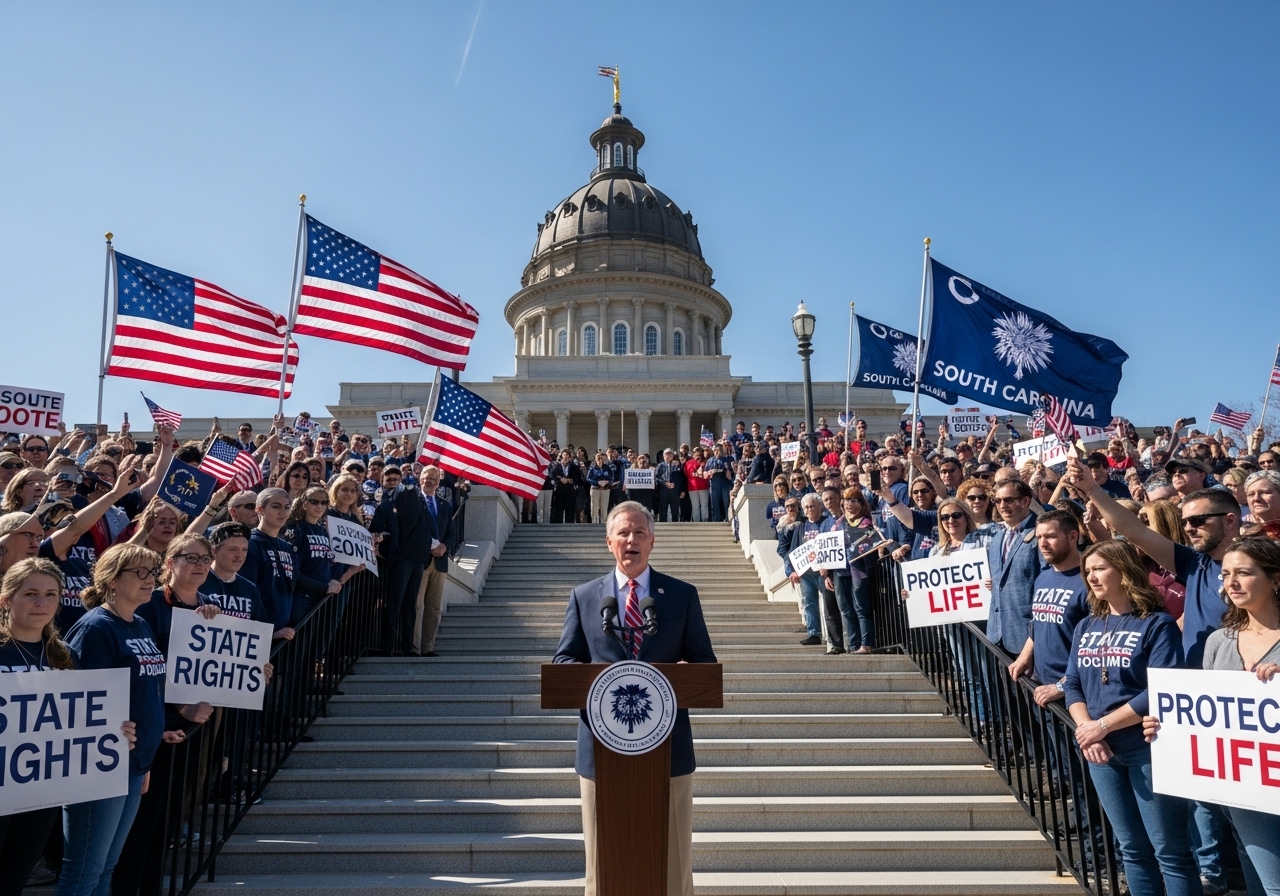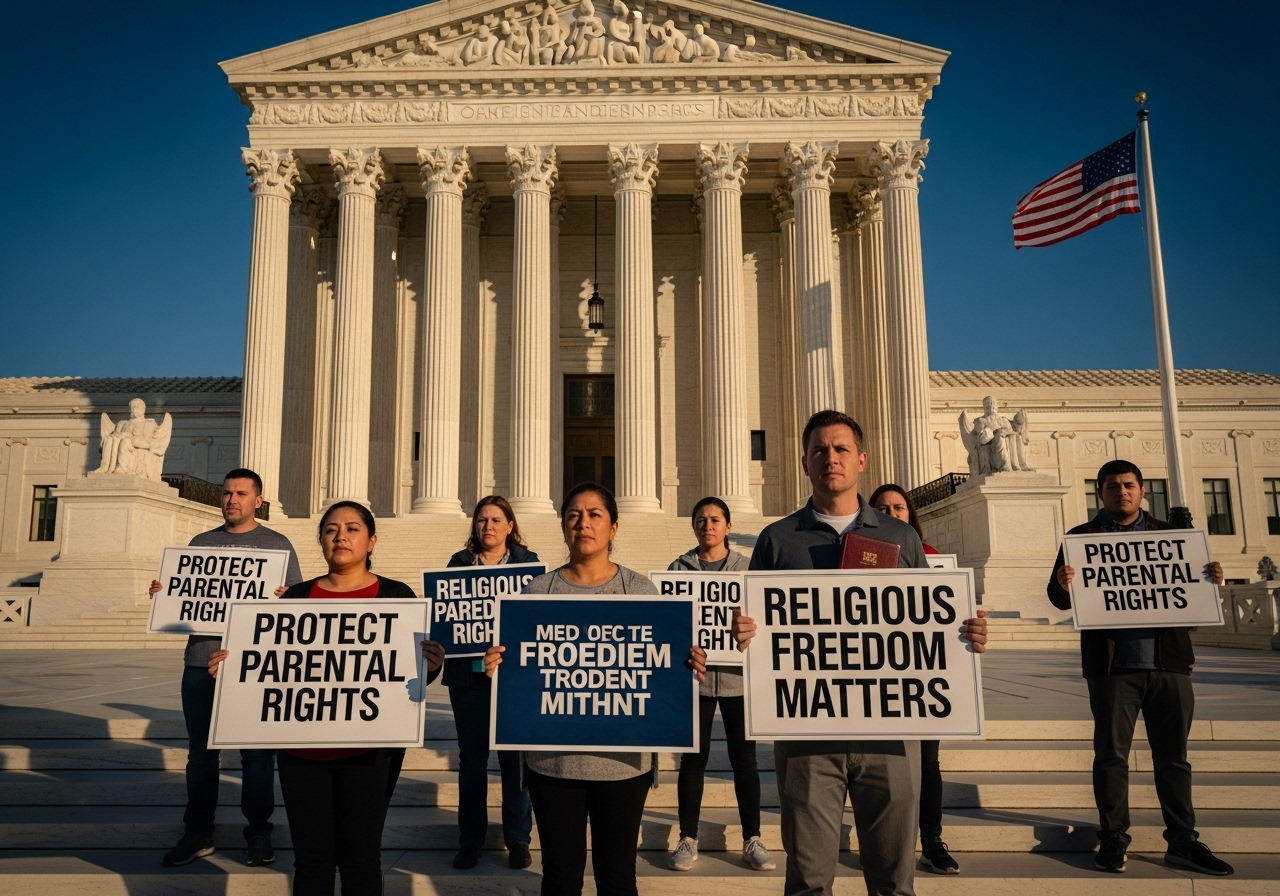Today, in a landmark victory for conservatives and defenders of states’ rights, the Supreme Court delivered a decisive 6–3 ruling affirming South Carolina’s authority to exclude Planned Parenthood from its Medicaid program. Justice Neil Gorsuch, writing for the majority, made it abundantly clear: states have the right to determine which providers qualify for Medicaid funding, and the federal courts cannot meddle in those decisions absent a clear and explicit mandate from Congress.
This ruling isn’t just a simple policy decision; it represents a fundamental shift back toward the core American principles of federalism and state sovereignty. For far too long, activist judges and liberal special interests have weaponized federal laws like Medicaid to force states into funding abortion giants like Planned Parenthood. Today, that era of judicial overreach took a significant blow, as the Supreme Court reasserted the rights reserved to the states and the American people.
South Carolina Governor Henry McMaster deserves praise for courageously standing firm against Planned Parenthood’s aggressive litigation campaign. Back in 2018, McMaster signed Executive Order 2018-21, explicitly directing state health officials to “deem abortion clinics unqualified to provide family planning services.” He made it clear: taxpayer dollars should never underwrite an organization deeply entangled with abortion, the deliberate termination of innocent human life. South Carolina’s bold stand ignited a legal battle, culminating in today’s Supreme Court victory.
The significance of this ruling goes far beyond South Carolina. With the Supreme Court’s affirmation, other conservative-led states have a clear green light to ensure their Medicaid programs reflect their citizens’ pro-life values. Missouri, Arkansas, Mississippi, and Texas have already taken similar steps, removing Planned Parenthood from their Medicaid networks—now, many more states will follow suit, empowered by today’s high court decision.
In the new majority opinion, Gorsuch wrote that Section 1983 allows “private plaintiffs to sue for violations of federal spending-power statutes only in ‘atypical situations’ where the provision in question ‘clear[ly]’ and ‘unambiguous[ly]’ confers an individual right.” The spending law at issue in this case “is not such a statute,” he wrote. Whether to allow private plaintiffs “to enforce a new statutory right poses delicate questions,” Gorsuch wrote. “New rights for some mean new duties for others,” he noted, adding that private enforcement actions can force governments to spend money on litigation instead of public services. “The job of resolving how best to weigh those competing costs and benefits belongs to the people’s elected representatives, not unelected judges charged with applying the law as they find it,” Gorsuch wrote.
Justice Clarence Thomas, in a powerful concurring opinion, went even further, correctly noting that Section 1983 has strayed far from its original intent as part of the Civil Rights Act of 1871. Thomas emphasized that today’s invocation of Section 1983 often bears “little resemblance to the statute as originally understood.” He rightly advocated for reassessing the boundaries of Section 1983 to stem its misuse by liberal litigants seeking to hijack state decisions.
Predictably, Justice Ketanji Brown Jackson penned an overwrought dissent, accusing South Carolina of continuing its historical resistance to civil rights. Jackson’s argument is emblematic of the left’s distortion of civil rights history to suit their modern-day progressive agenda. Defunding Planned Parenthood isn’t about denying rights—it’s about affirming the fundamental right to life and preventing taxpayer dollars from funding organizations whose primary business involves ending innocent lives.
This decision marks a promising return to a proper balance between state and federal power, a core conservative value long championed by President Trump and the America First movement. It underscores the importance of appointing constitutional conservatives to the Supreme Court, judges who respect the rule of law and reject judicial activism. The Trump legacy on the Supreme Court continues to bear fruit, delivering victories for conservatives and Americans who cherish life, liberty, and limited government.
Today’s ruling is a solid victory for conservatives, the pro-life movement, and every American who believes that states—not unelected federal judges—should determine how their taxpayer dollars are spent. The tide has turned, and the battle for life and state sovereignty is stronger than ever.





